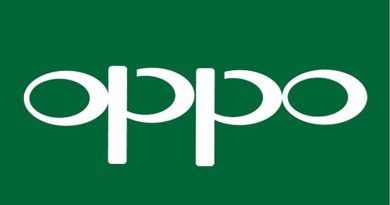Provisions of the 2022 Finance Bill passed by the National Assembly
On 28 December, 2022, it was reported that the National Assembly had passed the annual Finance Bill 2022 (the Bill), in line with the practice of the 8th National Assembly since 2019.ji
The Finance Bill, which is currently awaiting the presidential assent, has a proposed commencement date of 1 January, 2023 and introduces significant changes to a number of tax and regulatory laws in Nigeria. The Bill amongst others, seeks to amend key provisions of the Capital Gains Tax Act, Companies Income Tax Act, Customs, Excise Tariff etc. (Consolidation) Act, Personal Income Tax Act, Petroleum Profits Tax Act, Stamp Duties Act, Value Added Tax Act, Corrupt Practices and other Related Offences Act and the Public Procurement Act
Some of the key amendments introduced by the Bill include the following:
• Increase in the Tertiary Education Tax from 2.5% to 3%.
• Change of the name of the “Federal Inland Revenue Service” to “Nigeria Revenue Service”, change of the designation of the Chairman / Chief Executive to Commissioner-General and re-composition of the Board of the Nigeria Revenue Service.
• Income made by a company from gaming, gambling, betting, or lottery business are to be taxable under the CITA
• Appointment of Commissioners for the Nigeria Revenue Service and re-composition of the Technical Committee of the Board.
• Recognition of digital assets as a form of chargeable asset subject to capital gains tax at the rate of 10% on gains accruing from the disposal of such digital assets.
• Removal of Investment Allowance of 10% applicable on capital expenditure incurred on plant and equipment. This will however not be applicable to such assets acquired on or before 31 December, 2022
• Removal of Rural Investment Allowance ranging from 15% to 100% applicable on capital expenditure incurred for the provision of facilities such as electricity, water or tarred road for the purpose of a trade or business which is located at least 20 kilometers away from such facilities provided by the government. This will however not be applicable to such assets acquired on or before 31 December, 2022
• Removal of the income tax exemption on 25% of incomes in convertible currencies derived from tourists by companies engaged as hoteliers provided that such company that has set aside reserved funds shall continue to enjoy such exemption until the funds are fully utilized.
• Introduction of a new corporate tax rate of 50% to be levied on Companies engaged in gas flaring.
• Imposition of a levy of 0.5% on all eligible goods imported into Nigeria from outside Africa to finance capital contributions, subscriptions and other financial obligations to the Africa Union, African Development Bank, Africa Export-Import Bank and other multilateral institutions as may be designated by regulation issued by the Minister responsible for Finance.
• The scope of services liable to excise duty under the Customs, Excise Tariff, etc. (Consolidation) Act has been expanded to include other services in addition to telecommunications services.
• Amendment of Customs & Excise Tariff Act to clarify the powers and responsibilities of the Minister of Finance to review the customs and excise tariff via the Tariff Review Board
• The partial tax exemption from Companies Income Tax (CIT) granted on incomes in convertible currencies made from tourists by hotels is to be repealed
• Premium paid to an insurance company in respect of a contract for deferred annuity for an individual or his/her spouse shall be treated as an allowable deduction under PITA subject to a minimum holding period of 5 years. The implication of this provision is that PIT shall apply to any portion of the deferred annuity withdrawn within the 5 years minimum holding period.
• Contributions made to a fund, scheme or arrangement approved by the Nigerian Upstream Petroleum Regulatory Commission for the purpose of decommissioning and abandonment are to be treated as allowable tax deductions under the Petroleum Profits Tax Act.
• The sharing formula for the statutory allocation of revenue generated from the collection of Electronic Money Transfer Levy under the Stamp Duties Act has been amended with Local Governments now entitled to receive 35% of proceeds of such revenue whilst the Federal and various State Governments will receive 15% and 50% respectively.
• The Federal Inland Revenue Service (Nigeria Revenue Service) is empowered to raise Value Added Tax assessment on dispositions and related party transactions, which it deems to be artificial or fictitious in nature. This new inclusion under the Valued Added Tax Act is a general tax anti-avoidance mechanism which seeks to combat the incidence of aggressive transfer pricing, base erosion, profit shifting and tax evasion.
• Importation of taxable goods purchased through an online electronic or digital platform operated by a Non-Resident Supplier (appointed as a VAT collecting agent of FIRS) into Nigeria are not subject to VAT at the point of clearance with the Nigerian Customs Service where the importer furnishes evidence of registration or appointment of such collecting agent with the FIRS and VAT charged on the sales invoices of the goods. This is to eliminate the risk of double charge of VAT on taxable goods purchased through an online digital platform and the subsequent importation of such taxable goods into Nigeria.
• All public procurement carried out by any procuring entity under the Public Procurement Act shall be conducted based on approved procurement plans supported by prior budgetary appropriations subject to other existing regulatory requirements.
Implication
It is expected that the National Assembly, in the days ahead, will transmit the Finance Bill to the President for his assent, in line with the provisions of Section 58 of the Constitution of the Federal Republic of Nigeria, 1999 (as amended) to enable the Bill have the force of law in Nigeria.
Upon the signing of the Finance Bill into law by the President, the Act will become operational and its provisions will become law. Companies, individual and business in Nigeria will therefore be expected to analyse and understand the provisions of the Act and its possible impact on their business operations and tax obligations going forward.
It should be noted that like every new law, the Finance Bill 2022 once passed into law, is likely to come with its challenges and opportunities for businesses and individuals. Therefore taxpayers are advised to seek professional guidance in order to understand how the new law will impact their business operations going forward and any new compliance obligations to be discharged or benefits to be enjoyed. Andersen will stay at the front of the discourse regarding the Finance Bill and we will provide additional details and detailed analysis on the implications of the various provisions of the Bill in our subsequent publications. SOURCE: Andersen




